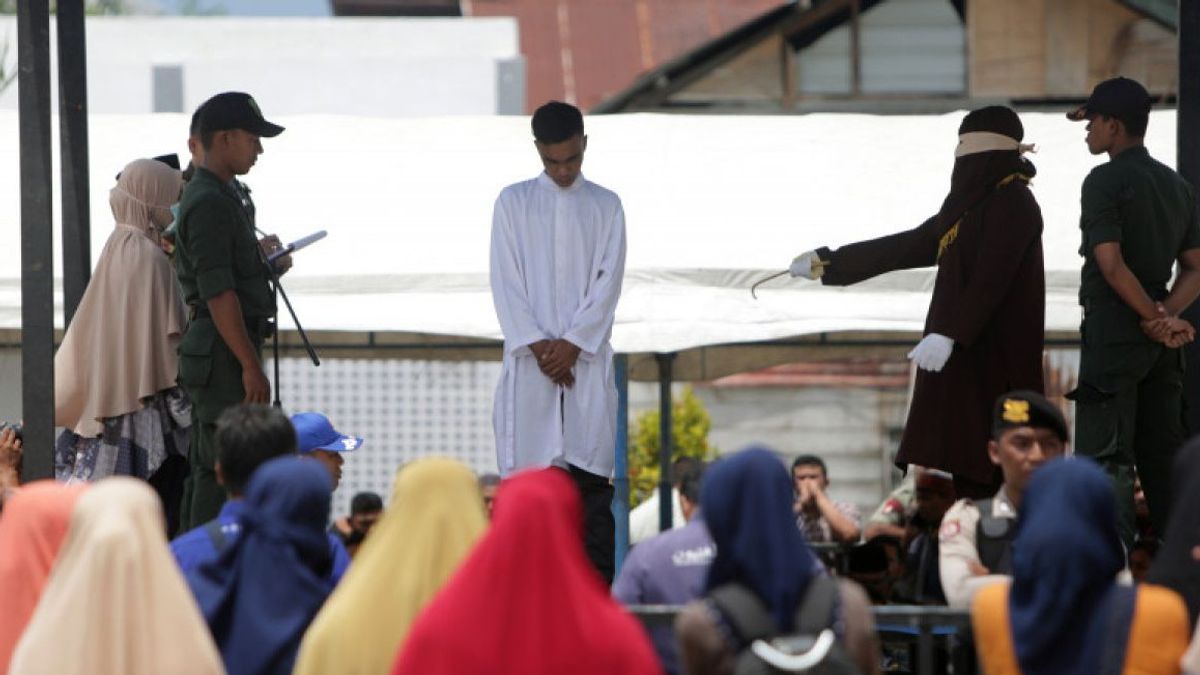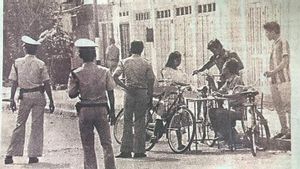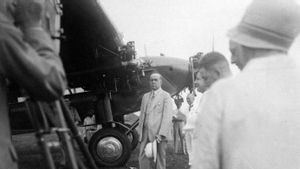JAKARTA - Islamic law is not new in Malaysia. The neighboring country has introduced Islamic law since time immemorial. The rule comes from the time of the kingdom to Malaysia's independence. Law of caning, especially. Anyone who is licensed and drinking alcohol will be lashed in public.
The implementation of the mixed sentence after independence was uneven. However, amendments to the 1980s Law (UU) changed everything. The caning must be applied throughout Malaysia. Criticism also emerged from the Malaysian people themselves and the world.
The influence of Islam is quite large in Malaysia. The narrative stems from the large number of Islamic traders who came to Malaysia from the 7th to 11th centuries. The arrival actually had a significant influence.
Many of the Malay people voluntarily embraced Islam. In fact, without war routes such as the general spread of the religion of the era. Islamic existence has also increased. Islamic law is able to collaborate with the customary law of the Malays and is agreed upon.
The presence of Terengganu Inscription is proof. Inscription with 22 Fabuari 1303 contains Islamic law rules. One of these rules relates to punishment for immoral perpetrators: drinking alcohol and adultery.
The punishment presented is caning. The caning sentence continued to be popular over time. In fact, the era of the Malay kingdom which was replaced by the power of the British colonial government did not make the caning sentence forgotten.
The caning will continue to last and live in the Malay community in Malaysia. However, that existence began to fade when Malaysia became free from England. The caning law is no longer applied throughout the country.
The power of attorney was then shaken when the Prime Minister (PM), Mahathir Mohamad took power. The 4th Malaysian Prime Minister was the determinant of the amendment to the amendments to the law related to Islamic legal applications in Malaysia in the 1980s.
The Mahathir government has included the caning law as a mandatory punishment for violators of four sharia crimes: drinking alcohol, everything that leads to adultery, adultery, and homosexuals. The sentence was perpetuated in 1987.
Those caught perpetuating immoral activities will get a maximum sentence of six times of rattan cans in the open. Also witnessed by at least four Muslim people. Even then, the whips must be directed to the back with different parts.
اقرأ أيضا:
The Algojo who carries out the punishment is also required: to be fair and not emotional. That's why the executioners must practice the way of dealing with them with rattan in accordance with what is outlined in the Shari'a law. Moderate to familiarize sharia law servants (a number of Religious Javanese employees consisting of Kadi, mufti, and religious prosecutors) with sharia court procedures and administration.
They are required to take a course for a year and a half at the Islamic University of the Nation, in Kuala Lumpur. Last January 1987, 30 sharia legal servants from 14 states have completed their courses. After that, they still have to "learn" to the three-month civil court - to compare the process in the civil court with the sharia court, "explained Farida Herwanto and Ekram H. Attamimi in his writing in Tempo Magazine entitled Canbuk without Emotions (1987).
The Malaysian government considers the caning to be effective in stopping immoral acts. However, the spirit of caning is opposed here and there. About not only comes from the people, but former officials in power.
Former Prime Minister of Malaysia First, Tunku Abdul Rahman Putra, for example. The presence of the caning law is called many disadvantages, rather than benefits. The law of caning can make the dignity of the Malays, who in fact are Muslim majority, look low by other religions.
All of this is because of the reach of the caning law that only takes care of immorality. As a result, the image of the Malays is a criminal who spread throughout Malaysia. Tunku also advised the government of power to perpetuate other punishment options, rather than caning.
Other criticisms also continue to emerge from within and outside the country. The caning is actually considered unfair to other religions. Those who are of other religions are wary of. In fact, they do not know the term caning in their religion.
New problems then emerged. Malaysia can also be threatened with being empty of world tourists. This policy will have a significant impact on the tourism industry. There is also no guarantee that the number of immorality will decrease in Malaysia due to caning. Even now, caning is starting to be used for officials who like to hang people's money. Corruptors.
Once again Tunku's statement has caused a warm reaction, both from those who oppose and those who support it. Among the main characters who support it are Tun Hussein Onn, the third Prime Minister of Malaysia. Like Tunku, Tun Hussein also considers that the caning law is no longer in accordance with the current context. He acknowledged that the law is contained in the Koran, but its implementation requires caution by taking into account the psychological consequences held by the convict in the context of Malaysian society.
The amount of immorality in this country will not be overcome even though the Law on caning against Muslims continues to occur and increases compared to the mistakes of other nations. Even the law of caning because drinking wine can hurt the hearts of Muslims and non-Muslims, because they do not use such a law," said Abdul Rahman Haji Abdullah in the book Islamic Thoughts in Malaysia: History and Flow (1997).
The English, Chinese, Japanese, Arabic, and French versions are automatically generated by the AI. So there may still be inaccuracies in translating, please always see Indonesian as our main language. (system supported by DigitalSiber.id)














